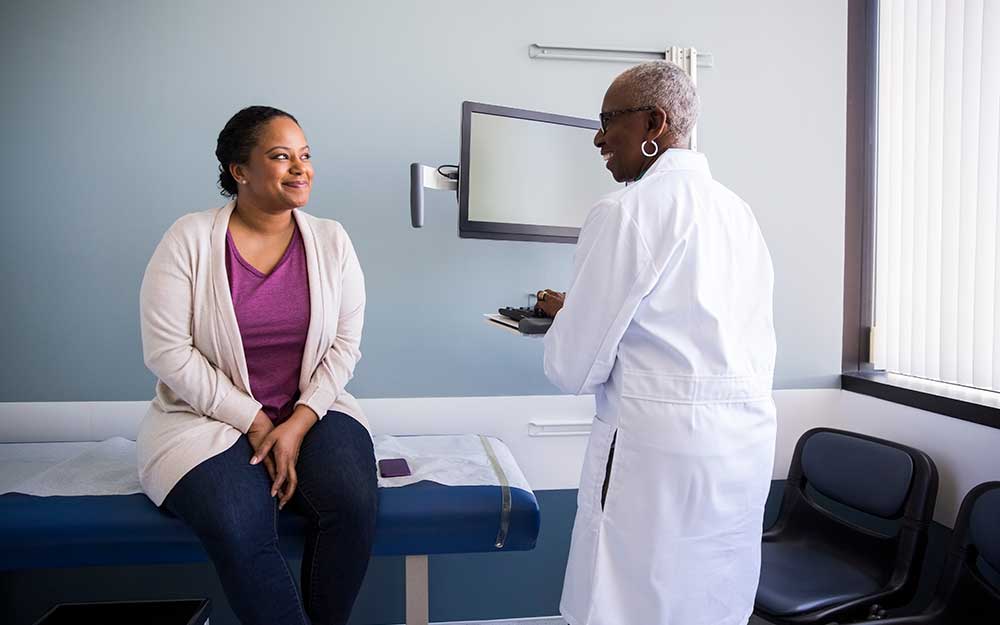Faces of Cedars-Sinai: Social Worker Deb Tuckman
Date
March 30, 2023

Date
March 30, 2023
Credits
Medical providers featured in this article
In Brief
{{cta-block}}
Social workers are a valuable part of the hospital ecosystem. Not only do they aid patients and their families, but they also provide support to doctors and medical staff. For the past 22 years, Deb Tuckman has been a social worker in the Cedars-Sinai Emergency Department.
Deb says she loves the fast-paced nature of the Emergency Department (ED) and training interns for a future career in social work. In honor of Social Work Month, we talked to Deb about how she transitioned from theater to healthcare and what she enjoys about her role.
What made you decide to become a social worker?
Deb Tuckman: It was actually a weird path, as social work is my second career. I worked in professional theater for about eight years and then was hired by a director of a theater’s board to work for his foundation.
Through that job, I became interested in teaching, but I liked working one-on-one with people, so I thought I wanted to be a therapist. I went to social work school with the intention of becoming a family therapist but then realized I found it more fulfilling to do task-oriented and solution-focused work. What I liked was responding to crisis and being able to have an impact quickly, which ultimately led me to the ED.
Do you use your theater background in your day-to-day work as a social worker?
DT: My theater background really lends itself to working in the ED. There’s a lot of improvisation that goes into responding to a crisis. Improv is my comfort zone and my skill set. When people ask me if I miss theater, I tell them, "I do theater every day; that’s literally what my job requires." There’s really no typical day for me because there’s so much unpredictability in the ED
The Emergency Department can be a high-stress environment. How do you manage this?
DT: There are certain personalities who can work in the ED and those who can’t. Working in the ED requires a level of tolerance and comfort with uncertainty and the unknown. The ED is always challenging me, which allows me to be a social worker to the best of my abilities. I also work with a strong network of people.
What has changed since you started in the Emergency Department at Cedars-Sinai 22 years ago?
DT: I was the first social worker in the ED at Cedars-Sinai. I didn’t have anyone to teach me, so I built the job myself. Now we’re fully staffed 24/7. I think the respect people have for social work and the need for it have grown. As social workers, we bring humanity back into crisis situations. We are there to remind all involved that patients are people and that people have intrinsic value. That’s what we want to focus on.
You also oversee the social worker internship program for the medical center. What do you enjoy about training interns?
DT: It’s so integral to social work training to have a good internship. I learned so much from my internships—not just about social work, but about myself. I want to give that back. The social work internship program at Cedars-Sinai helps interns learn how to be a social worker in a real setting. We want them to be able to work as professional social workers by the end of the year and to know where they fit in the social work landscape.
You’re a big traveler when you’re not in the Emergency Department. Where’s the last place you traveled to?
DT: My husband and I just got back from England and France. Every place we visited was my favorite, but I love Paris so much. While in London, we were able to take in some theater and saw a play titled “A Play That Goes Wrong.” It’s a scripted play-within-a-play where the set breaks down, the actors get injured and everything "goes wrong." The play reminded me of my role as a social worker in the ED.





